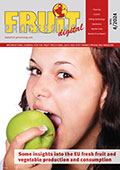The fourth wave of Covid infections makes it impossible to achieve the special experience of the Green Week
The International Green Week 2022 (21 to 30 January) will not be taking place. The reason is the rising number of infections in Germany due to the fourth wave of Covid infections, as well as current and anticipated pandemic-related restrictions.
“The International Green Week thrives on people meeting each other and being able to sample, taste and discover things. Under the current circumstances, with face masks and physical distancing, we cannot fulfil the expectations of our visitors to the Green Week“, said Lars Jaeger, the project manager for the International Green Week at Messe Berlin.
Green Week supporting events to take place in a virtual format
The Federal Ministry of Agriculture is extending an invitation to the 14th Global Forum for Food and Agriculture (GFFA). From 24 to 28 January 2022 at this virtual forum, around 2,000 participants representing politics, business, science and society will debate food and farming policy issues. The focus of the GFFA 2022 is on ’Sustainable farming: food security starts with the soil’.
With the 15th Forum on the Future of Rural Development on 26 and 27 January 2022, the Federal Ministry of Agriculture will provide a virtual platform for exchanging views, discussion and exchanging knowledge on ’A strong honorary position – for a good rural life’.
The next International Green Week will take place from 20 to 29 January 2023 on the Berlin Exhibition Grounds.









